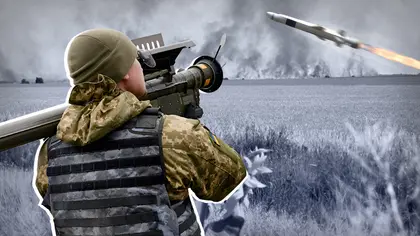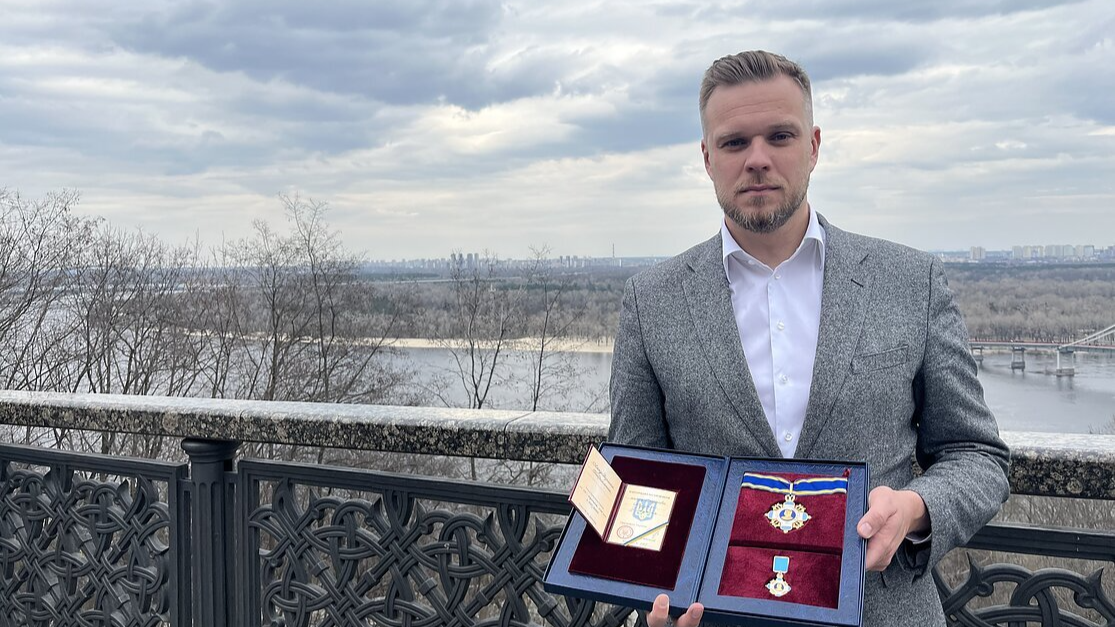For more than a year now, Ukrainian cities have endured countless missile and drone attacks, raining death and destruction on civilian targets including homes, railway stations, and power plants.
While the damage has been immense and many lives lost, the toll would be many times greater were it not for Ukraine’s Air Defense Forces (ADF).
JOIN US ON TELEGRAM
Follow our coverage of the war on the @Kyivpost_official.
As with all parts of the Ukrainian Armed Forces (UAF), the level of love and respect the country’s population has for the ADF is immense, and every Russian missile attack is followed by an outpouring of appreciation for their work on social media.
In Kyiv now: Air Defence is working whilst people opened their windows and are yelling on top of their lungs "F*ck putin!" "Glory to Ukraine! Glory to Heroes".
— AlexFrom 🇺🇦 (@MisterA1980) January 1, 2023
First minutes of 2023.
Europe
Ukraine
Democracy
PS Did that sob seriously thought he would break us that easily?
Yet despite this crucial work, their work behind the scenes remains largely undescribed. To gain some insight, the Kyiv Post talked with the deputy commander for moral and psychological support (MPS) of the air defense of the Northern District.
This 25-year-old military volunteer, whose call-sign is “Pilot”, described five things he’d like people to know about his crucial work.
July 5, 2022, at 4:00 am - Ukrainian Air Defense in combat work.
— Anton Gerashchenko (@Gerashchenko_en) July 5, 2022
Our Warriors were able to shoot down 6 out of 7 enemy cruise missiles aimed at Dnipro.
Thank you! Just imagine how many lives were saved by these Heroes.🇺🇦 #UkraineUnderAttaсk #UkraineRussianWar pic.twitter.com/e3XoQTok42
1) It’s non-stop and utterly exhausting work
Pilot’s role is hugely varied – not only does he train his colleagues in how to shoot down missiles with Stingers, but he’s also responsible for the mental well-being of his colleagues.
“The work here is stressful, because you must always be on the lookout, as incoming missiles and aircraft can arrive completely unexpectedly. As a deputy commander, I have to prepare people for this. My duties include maintaining the moral and psychological state of the military, as well as combat training.

1,100 North Korean Casualties in Russia-Ukraine War: Seoul
“In fact, I would never have thought that I could constantly wake up so early, around 5:30 in the morning, and go to sleep late. Before the full-scale invasion, I had a fickle schedule. I was a student and also studied music, so I would sometimes fall asleep at six in the morning and wake up at four in the afternoon.
“But you can get used to everything, especially when you know why you're doing it. Fortunately, at least now it is reasonable to sleep, because in the first days of the war we just didn’t have time at all.
“But summing up, I can say that it feels like only a single day and a single night have been going on since February 24, 2022.”
2) Shooting down a Russian missile is no easy feat
Ukraine’s air defenses have vastly improved since the early days of Russia’s full-scale invasion and Kyiv’s allies are continuing to pledge and provide more advanced systems such as PATRIOT.
Yet some of the work is still relatively low-tech – a group of soldiers armed with shoulder launched missiles, trekking to where they think a Russian rocket will fly over.
“Before a certain object flies over Ukraine, the radar stations detect it. Therefore, we can understand the trajectory of this object, where it is flying to, and where it can be intercepted.
“Our task is to track the target and intercept it where our operational range allows it. There are units that are directly engaged in intercepting these aerial objects. But the difficulty is that we do not have large hardware like the S-300, ST-68, which have a different level of detection and greater efficiency.
“Our units intercept air targets with Stinger man-portable air defense systems. In other words, we calculate where we need to take a position in order to successfully complete the task. There are also separate positions where our military personnel are constantly located and always on the lookout.
“However, the human factor also plays an important role. That is, a given person might make a launch or not, or it might be difficult for him, and so on. Therefore, it is my task to prepare people to successfully launch and destroy the target.
“Another challenge is visually identifying the target on the spot. After all, you can understand approximately what area the target is located in, but you still need to establish visual contact. And here weather conditions play a role, as well as the features of each person's vision.”
Shooting down a Russian cruise missile with MANPAD Igla this morning, undisclosed location
— Euromaidan Press (@EuromaidanPress) December 29, 2022
📹https://t.co/BgXuukpQW5 pic.twitter.com/DZiefUCq7T
3) Even the armed forces aren’t immune to Russian disinformation
The effects of Russia’s vast propaganda network on its own people as well as those abroad and civilians in Ukraine are well documented, but what is less discussed is the potential harm it can cause members of the AFU.
“Russia releases a lot of fakes to try to destabilize the situation inside the country. Therefore, our task is to identify and refute these fakes. But we must do so differently than in Russia, where they simply say: ‘This is not true, and that's that.’ We need to explain, in an accessible language, why this or that information is false.
“Our task is also to prevent the spread of these fake stories. In other words, we need to find the chats and information channels on the social networks where such misinformation is being spread. And, accordingly, to report the names of these channels so that people do not consume the information there.
“Also, there is psychological training. For this, almost every department has its own psychologist, who holds conversations with soldiers, makes various kinds of tests to determine their personality. This helps to identify deviant behavior and prevent violations of military discipline. One of the main tasks is to profile military personnel in such a way that they work as efficiently as possible in their groups.
“And then there is moral and psychological training is patriotic education, the goal of which is to make sure that people do not forget their history and that they understand what they are fighting for. This is usually dedicated to important moments in the country’s history. Meetings are held in the format of communication, and I also prepare presentations. There are also options for attending concerts and watching relevant movies.
“And you know, I have never encountered such things before, but now I understand that many people really do not know the well-established facts from Ukrainian history. Of course, this is the result of the Soviet Union, which methodically eradicated our history and identity. Therefore, such classes are interesting, especially when you show people the reality and see their delight in expanding their horizons.”
4) They’re ordinary people doing extraordinary things
“I am a civil aviation pilot by profession. However, even during training, my military accounting specialty (MAS) was defined as piloting military transport aviation. So I wanted to help my country in the sky. Unfortunately, we have certain problems with aviation. Therefore, as the saying goes: “if we cannot fly, we will shoot things down.”
“But I didn't immediately get into the Air Defense Forces. In general, I am from Chernihiv, but on February 24, 2022 I was on flights to Poltava. Being in a different city from my family at that time was hard. First, I helped at the checkpoint in Poltava, and then I joined the territorial defense in Kyiv.
“In fact, the first month was super-tough, given that all combat units were coping with chaos across the country. But later, when the fighting moved away from Kyiv, I still wanted to do something for the sake of our common cause. And there was an opportunity to officially join the ranks of the Armed Forces of Ukraine here in Chernihiv region.
“I have already mastered this new form of activity in practice. When you are motivated, you learn much faster and gain experience quickly. Five months later, I was promoted to deputy commander.”
5) They still need more and better equipment
As evidenced just this week, in the face of Russian mass missile attacks – particularly hypersonic missiles – the ADF simply cannot defend against all missiles with the equipment it has.
“It’s not right when people say that we are an Air Defense Force, yet we didn't manage to shoot down a target. Because each unit has its own operational capability, beyond which it cannot go, despite its every desire. So we are effective when there is something we are able to knock out of the sky.
“Honestly, I would very much like our division to have more advanced systems so that we can work more efficiently. For example, the SAMP/T system or the German Gepard self-propelled anti-aircraft artillery system.”
You can also highlight the text and press Ctrl + Enter









